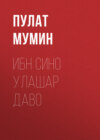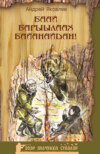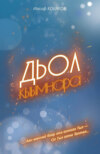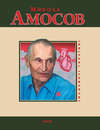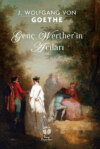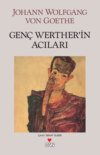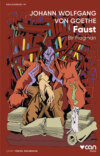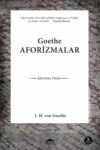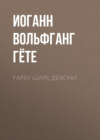Kitabı oku: «German Fiction», sayfa 22
CRITICISMS AND INTERPRETATIONS
I
By Richard M. Meyer
Fontane possesses the wonderful irony of the Berliner-an irony which, paradoxical as it may sound, is naïve; for it is nothing but an involuntary doubt of his equally naïve conceit, as Fontane often likes to say. Assuredly the Berliner is inclined to a certain conceitedness. He belongs to a city which has grown great in a struggle against antipathies-antipathies of the Government and of the "Junker" class, of the poets and of the rival capitals, one might almost say of nature herself, so sparingly has she dealt with this city on the Spree. In this constant struggle Berlin has been victorious, and every Berliner to this day feels that victory to the marrow of his bones. Fontane, using his friend Lepel as his mouthpiece, makes him say, "Well, Fontane, there you are again; talking like an oracle. It all comes from that curiously naïve belief in yourself. You always think you know everything best. But I can tell you, there are people living on the other side of the mountains too." This quiet feeling of superiority the Berliner has gained only after a struggle, and therefore he is at bottom precisely aware of his limits. No one can express this more strikingly than Fontane himself: "Deeply penetrated by my insufficiency and my ignorance, I saw-incredible though it may seem-that the ignorance of my fellow-creatures was even greater than my own. So I was at the same moment both humble and conceited." There is the typical Berliner! He knows well his own weakness, but, since he is successful, he takes it for granted in all naïveté that he is yet the one-eyed among the blind.
It is this attitude which gives Fontane's irony its peculiar flavor…
The gentle melancholy of two people coming together in a way which can never lead to full satisfaction, the quiet tragedy of a separation not forced by external powers but by the constant pressure of circumstances-this is what sounds through this splendid story. "Trials and Tribulations" is built entirely on this motive. An honest sturdy young officer and a decent pretty girl get to know each other on an excursion. Unconsciously they drift into a relation where heart meets heart, the breaking of which causes the deepest pain. But both see clearly from the beginning that there is no other end. For they know that the world is stronger than the individual, and the many small moments than the one supreme. They know it, for they are, like their creator, resigned realists. They shut their eyes only in order not to see the end too near. Then comes the parting, still and quiet: "She leaned on him and said quietly and warmly, 'And so this is the last time that I shall hold your hand in mine?'" – From "Die deutsche Litteratur des neunzehnten Jahrhunderts" (1910).
II
By S. C. De Soissons
In 1898, Germany suffered a great loss in the person of Theodor Fontane, who represented a superior kind of realism, and to whom the modern German novel was very much indebted. As he was of French origin, his writings naturally possessed more equilibrium and measure than one usually finds in German writers; he also had a fine and keen esprit, never importuning, never displaying his wit, never running into pathos. For that reason his novels seemed cold to sentimental readers and frivolous to moralists. But the cultivated and unprejudiced reader admired his quiet experience and his deep knowledge of external life as well as of the depths of the human soul, qualities which were mingled with a love of his native country, Brandenburg. But although dead, Fontane has not ceased to be the father of modern realism. All that is good, true, beautiful, and important in the German realistic novel comes from Theodor Fontane. Naturalism and symbolism stand far apart from him; but even the most passionate and the most intelligent adversaries of symbolism point to him as a representative of true art. – From "The Modern German Novel," in "The Contemporary Review" (1904).
TRIALS AND TRIBULATIONS
A BERLIN NOVEL
CHAPTER I
At the junction of the Kurfürstendamm and the Kurfürstenstrasse, diagonally across from the Zoological Garden, there still remained, about the middle of the seventies, a large market-garden, extending towards the open country. The little house belonging to this property had but three windows, and was set about a hundred paces back in a front garden; yet in spite of its small size and its secluded position, it could be plainly seen from the road that ran past. But all else that belonged to the place, and indeed formed the principal part of it, was hidden behind this little dwelling as if by the side-scenes of a theatre, and only a little red and green painted tower with a half broken dial beneath its peak (nothing remained of the clock itself) gave one a hint, that behind this "coulisse" something more must be hidden, a hint which was confirmed from time to time by the rising and circling of a flock of pigeons around the tower, and still more by the occasional barking of a dog. Where this dog was actually kept it was indeed impossible to find out, in spite of the fact that the door of the house, which was close to the left corner, stood open early and late and afforded a glimpse of a small part of the yard. However, nothing seemed to have been purposely hidden, and yet everyone who came along the road at the time when our story begins, had to be satisfied with a glimpse of the little house with its three windows and of a few fruit trees that stood in the front garden.
It was the week after Whitsunday, when the days are so long that it seems as if the dazzling light would never come to an end. But to-day the sun was already hidden behind the church-tower of Wilmersdorf and instead of the light, with which it had filled the front garden all day, the shades of evening had already fallen, and the half mysterious silence was only surpassed by that of the little house which was occupied by old Frau Nimptsch and her adopted daughter Lena as tenants. But Frau Nimptsch was sitting as usual by the large low hearth in her front room, which took in the whole width of the house, and, bending forward, she was gazing at a blackened old tea kettle, whose lid kept up a continual rattling, although the steam was pouring out of the spout. The old woman was holding her hands out towards the glowing embers and was so lost in her thoughts and dreams that she did not hear the hall door open and a stout woman enter somewhat noisily. Only when the latter cleared her throat and greeted her friend and neighbor, our Frau Nimptsch, quite affectionately by name, did the latter turn around and speak to her guest in friendly fashion and with a touch of playfulness: "Well, this is good in you, dear Frau Dörr, to come over again. And from the 'castle' too. For it is a castle and always will be. It has a tower. And now do sit down… I just saw your dear husband go out. Of course he would have to. For this is his evening at the bowling alley."
She who received this friendly greeting as Frau Dörr was not only stout, but was an especially imposing-looking woman, who produced the impression of narrow-mindedness as well as that of kindliness and trustworthiness. Meanwhile Frau Nimptsch apparently took no offence and only repeated: "Yes, his evening at the bowling alley. But what I was going to say was, that Dörr's hat really will not do any longer. It is all threadbare and really disgraceful. You ought to take it away from him and put another in its place. Perhaps he would never know the difference… And now draw up your chair, dear Frau Dörr, or perhaps over there where the footstool is… Lena, you know, has slipped out and left me in the lurch again."
"Has he been here?"
"Of course he has. And they have both gone a little way towards Wilmersdorf; nobody comes along the footpath. But they may be back again any minute."
"Well, then I had better go."
"Oh, no indeed, dear Frau Dörr. He will not stay. And even if he should, you know, he would not mind."
"I know, I know. And how are things then?"
"Why, how should they be? I believe she is thinking of something even if she does not want others to know it, and she is imagining something or other."
"Oh, my goodness," said Frau Dörr, as she drew up a somewhat higher stool instead of the footstool that had been offered her. "Oh, my goodness, then it's bad. Whenever one begins to imagine things, trouble begins. It is just like the Amen in church. See here, dear Frau Nimptsch, it was just the very same with me, only there was no imagining. And that is just why everything was really quite different."
Apparently Frau Nimptsch did not really understand what Frau Dörr meant, and so the latter went on: "And because I never took any notions into my head, things always went perfectly well and smoothly and now I have Dörr. Oh well, that isn't much, but still it is something respectable and I can show my face everywhere. And that is why I went to church with him too, and not merely to the registrar's office. If you only go to the registrar's office, there will always be talk."
Frau Nimptsch nodded.
But Frau Dörr repeated: "Yes, in church, in the Matthäikirche. But this is what I was really going to say, don't you see, my dear Frau Nimptsch, I was really taller and more pleasing than Lena, and if I was not prettier (for that is something one can never rightly know and tastes differ so), yet my figure was stouter and a great many like that. Yes, so much is certain. But even if I was, as you might say, more solid and weighed more, and there was a something about me-well yes, there was something about me-yet I was always very innocent, almost simple; and as to him, my Count, with his fifty years on his shoulders, well, he was very simple too and always very gay and would never behave properly. And before very long, I told him: 'No, no, Count, this will never do; I can't allow anything like this…' And old people are always like that. I will only say, dear Frau Nimptsch, you can't imagine anything of the sort. It was dreadful. And now when I see Lena's Baron, it makes me ashamed to think what mine was like. And now as to Lena herself. My Lord, of course she isn't exactly an angel, but she is neat and industrious and knows how to do everything, and loves order and practical things. And don't you see, Frau Nimptsch, that is just the sad part of it. These fly-abouts, that are here to-day and there to-morrow, well, they never come to grief, they always fall on their feet like a cat, but such a good child, who takes everything seriously, and does everything for the sake of love, that is bad… Or perhaps it may not be so bad; you only adopted her and she is not your own flesh and blood and perhaps she is a princess or something like that."
At this conjecture Frau Nimptsch shook her head and looked as if she were about to answer. But Frau Dörr had already risen and said, as she looked along the garden path: "Heavens, there they come. And he is just in civilian's clothes, with coat and trousers to match. But you would notice him all the same! And now he is whispering something in her ear and she is smiling to herself. But she is blushing so… And now he is going away. And now … Really, I believe, he is turning back. No, no, he is only saying good-bye again and she is throwing him a kiss… Yes, I think something like that would have suited me… No, mine was not like that."
Frau Dörr went on talking, until Lena came in and greeted both women.
CHAPTER II
The next forenoon the sun, which was already rather high, shone into the yard of the Dörr's little establishment and lighted up a considerable number of buildings, among which was the "castle" of which Frau Nimptsch had spoken on the previous evening with roguish playfulness. Such a "castle"! In the twilight its general outlines might have passed for something of the sort, but to-day, as it stood in the remorselessly bright light, one could see only too plainly, that the building with its Gothic windows painted on the walls clear to the top, was nothing more than a wretched old wooden house, in the two gable ends of which had been set some timber framing, the spaces of which were filled with plaster, a comparatively solid structure which indicated two gable rooms. All the rest of the house was merely a stone-paved space from which a confused looking set of ladders led to a loft or garret and from that to the tower which served as a pigeon house. Formerly, before Dörr's time, the whole great wooden "shack" had served merely as a store-house for bean poles and watering pots, perhaps even as a potato cellar, but since, some years ago, the garden had been bought by its present owner, the real dwelling house had been rented to Frau Nimptsch, and the old building painted in the Gothic style, with the addition of the two gable rooms already mentioned, had been arranged as a dwelling for Dörr, who was then a widower; a very primitive arrangement it was, which was in no wise altered by his speedy second marriage. In the summer this cool store house with its stone pavements and almost no windows was not a bad dwelling place, but in the winter Dörr and his wife as well as a rather feeble-minded twenty-year-old son of the former marriage, would have actually frozen, had it not been for the two big hothouses which stood on the other side of the yard. In these the three Dörrs spent their time exclusively from November until March, but even in the warmer and more comfortable part of the year, the family life, when it was not actually necessary to seek refuge from the sun, was mostly carried on in front of these hot houses or in them, because everything there was more convenient. Here were the steps and shelves on which the flowers that were brought out of the hothouses every morning had their airing, here was the stall for the cow and the goat, and here the kennel for the dog that was used to pull the little wagon, and from here extended outward the double row of hotbeds, perhaps fifty paces long, and with a little path between, until they reached the vegetable garden which lay further back. This garden did not look very neat, partly because Dörr had no sense of order, and also because he had such a passion for poultry, that he would allow his favorites to scratch and pick everywhere, without regard to the damage that they did. To be sure, the damage was not great, for there was nothing very fine in the garden except the asparagus beds. Dörr thought that the commonest things were also the most profitable, and therefore raised marjoram and other herbs for seasoning sausages, especially "borré," concerning which he held the opinion that a genuine Berliner really needs only three things: his pale ale, his "gilka" and "borré." "With borré," he always concluded, "one is never at a loss." He was decidedly an eccentric, wholly self-sufficient in his views and was decidedly indifferent as to what might be said about him. His second marriage was in keeping with this tendency, a marriage of inclination, upon which the idea of his wife's unusual beauty had had its effect as well as her former relation to the Count, which instead of injuring her chances, had tipped the balance for the better and had simply served as a complete proof that her charms were irresistible. If there was any hint of overvaluing personal charms-and there was good ground for this opinion-it could not be on the side of Dörr himself, for whom nature, so far as outward appearances were concerned, had done uncommonly little. Thin, of medium height and with five strands of grey hair drawn over his head and brow, his looks would have been completely ordinary had not a brown mole between his eye and his left temple given him a certain mark of distinction. For this reason his wife, with some reason and in her own free and easy fashion used to say: "He is withered looking, but from the left he reminds me of a 'Borsdorfer'."
This description was well hit off and would have served to identify him anywhere if he had not continually worn a linen cap with a big visor, which being drawn well down over his face, hid its every-day as well as its unusual aspect.
And so, with his cap and visor drawn down over his face, he stood once more, on the day after the conversation between Frau Dörr and Frau Nimptsch, before a flower stand that stood against the front greenhouse, setting to one side various wallflower and geranium pots, which were to go to the weekly market on the morrow. They were all plants that had not been raised in pots, but simply set into them, and with especial joy and satisfaction he passed them in review, laughing beforehand at the "madams," who would come the next day to spend their usual five pfennigs, but in the end would be fooled. He considered this one of his greatest pleasures and indeed it was the principal part of his mental life. "If I could only hear them scold about it … If I only could."
He was talking to himself in this vein, when he heard from the garden the barking of a little cur together with the distressed crowing of a cock, and unless he was very much deceived, of his cock, his favorite with the silvery feathers. And looking toward the garden, he actually saw his flock of hens rushing this way and that, while the cock had flown up in a pear tree, from which he constantly called for help while the dog barked beneath.
"Thunder and lightning," cried Dörr in a rage. "There is Bollmann's dog again… He has got through the fence again… But we shall see." … And quickly setting down the geranium pot that he was examining, he ran to the dog kennel, caught up the hook of the chain and turned the big dog loose, who rushed furiously through the garden. But before he could reach the pear tree, "Bollmann's beast" had already given leg bail and was disappearing under the fence into the open, the big yellow dog pursuing him with great leaps. But the gap that had sufficed for the pug would not let him through, and he was forced to give up the chase.
Dörr himself had no better luck, when he came up with a rake and exchanged glances with the dog. "Well, Sultan, we didn't catch him this time." And so Sultan trotted back to his kennel in a slow, puzzled way, as if he had been blamed for something. But Dörr himself gazed after the pug who was running over the ploughed ground and said to himself presently: "The Devil take me, if I don't get me an air gun at Mehle's or somewhere. And then I'll get the beast out of the way so silently that neither cock nor hen will make a sound. Not even mine."
The cock, however, seemed to have for the present no use for the quiet attributed to him by Dörr, but continued to use his voice just as strenuously as before. And meanwhile he puffed out his silver white throat as proudly as if he wanted to show the hens that his flying up into the pear tree was a well-considered "coup" or else a mere whim.
But Dörr said: "Oh Lord, what a cock. He thinks he is something wonderful. And yet his courage doesn't amount to much."
And so saying he went back to his flower stand.
CHAPTER III
The whole incident had also been observed by Frau Dörr, who was cutting asparagus, but she paid very; little attention, because such things happened nearly every other day. So she kept on with her work, and only gave up the search, when even the sharpest scrutiny of the beds failed to reveal any more white heads. Only then did she hang the basket on her arm, putting the knife in it, and driving a couple of strayed chickens before her, while she walked slowly along the middle path of the garden and then into the yard and up to the flower stand, where Dörr had resumed his work for the market.
"Well, Susy," he greeted his better half, "here you are. Did you see? Bollmann's dog was here again. Listen, he had better say his prayers and then I will try him out over the fire; there must be a little fat on him and Sultan can have the scraps… And listen, Susy, dog's fat…" And he appeared to become absorbed in a favorite method of treating gout which he had been considering for some time. But at this moment he caught sight of the asparagus basket on his wife's arm, and interrupted himself. "Come, show it to me," he said. "Did you have good luck?"
"So so," said Frau Dörr, holding out the scarcely half-filled basket, whose contents he passed through his fingers, shaking his head. For most of the stalks were thin and there were many broken ones among them.
"Now, Susy, listen. You certainly have no eye for asparagus."
"Yes I have, too. But I can't work magic."
"Oh well, we will not quarrel, Susy; that will not make it any more than it is. But it looks like starvation."
"Why, not at all. They are all under ground, and whether they come up to-day or to-morrow, it is all the same. One good shower, such as we had before Whitsunday, and then you will see. And there is going to be rain. The water barrel is already smelling again and the big spider has crept into the corner. But you want to have everything every day; and you can't expect that."
Dörr laughed. "Well, tie it all up nicely. And the poor little stalks too. And then you can sell it a little cheaper."
"Now, don't talk like that," interrupted his wife, who always got angry over his avarice, but still she pulled his ear, which he always regarded as a sign of affection, and then she went over to the "castle," where she meant to make herself comfortable in the stone paved passageway and tie up her asparagus in bunches. But she had scarcely drawn up to the threshold the stool which always stood ready, than she heard, over in the little house with three windows where Frau Nimptsch lived, a back window pushed up vigorously and a moment later hooked in place. And then she saw Lena with a lilac and white jacket over her woolen skirt and a cap on her ash-blond hair, waving a friendly greeting to her.
Frau Dörr returned the greeting with equal warmth and said: "The window always open; that's right, Lena. It is already beginning to grow hot. Some change must be coming."
"Yes. And mother already has her headache from the heat, and so I would rather iron in the back room. It is pleasanter here too; at the front we don't see anybody."
"That is so," answered Frau Dörr. "I believe I will come over to the window for a bit. I can always work better when I have some one to talk to."
"How kind and good you are, Frau Dörr. But right here by the window the sun is so strong."
"That will do no harm, Lena. I will bring my market umbrella along, the old thing is covered with patches. But it serves its purpose still."
And within five minutes, good Frau Dörr had moved her stool over by the window and sat there as comfortable and self-satisfied as if she were at the regular market. Inside the room Lena had put the ironing board across two chairs close to the window and stood so near it that it would have been easy to reach her with one's hand. Meanwhile the flatiron moved busily back and forth. And Frau Dörr also was diligently choosing and binding up her asparagus and if she paused from her work now and then and glanced into the room, she could see the glow of the little ironing stove from which the fresh coals were taken for the flatiron.
"You might just bring me a plate, Lena, a plate or a dish." And when Lena brought what Frau Dörr had asked, the good woman dropped into the dish the broken pieces of asparagus which she had kept in her apron while she was sorting out the stalks. "There, Lena, that will make a little taste of asparagus. And it is just as good as the rest. For it is all nonsense that you must always have the heads. And it is just the same with cauliflower; always the flower … pure imagination. The stump is really the best, for the strength of the plant is there. And the strength is always the most important thing."
"Heavens, you are always so good, Frau Dörr. But what will your husband say?"
"He? What he says doesn't matter. He will be talking. He always wants me to put in the spindling ones with the rest as if they were real stalks; but I don't like such cheating tricks, even if the broken pieces do taste just as good as the whole stalks. What anyone pays for, he ought to get, only it makes me angry that a man who gets on so well should be such an old skinflint. But all gardeners are like that, skimp and grasp and then they can never get enough."
"Yes," laughed Lena, "he is greedy and a bit peculiar. But for all that he is a good man."
"Yes, Lena, he is well enough so far, and even his stinginess would not be so bad, for at least it is better than wastefulness, if only he were not too fond. You would not believe it, but he is always right there. And just look at him. I have nothing but bother with him for all that he is fifty-six years old, and maybe a year more. For he tells lies if it suits him to. I keep telling him about strokes of apoplexy and point out people who limp or have their mouths drawn to one side, but he always laughs and will not believe me. But it will happen. Yes, Lena, I have no doubt that it will happen. And perhaps soon. Well, he has willed me everything he has and so I will not say anything more. When one has made one's bed, one must lie in it. But why are we talking about Dörr and strokes, and his bow legs. Good Lord, Lena, there are plenty of other folks who are as straight as a fir tree. Aren't there, Lena?"
At this Lena grew still more rosy than before, and said: "The charcoal is cold." And stepping back from the board, she went to the stove and shook the coal back among the embers, so as to take out a new one. All this was the work of a moment. And now with a quick turn of the hand she slipped the new hot coal from the tongs into the iron, shut the little door, and only then noticed that Frau Dörr was still waiting for an answer. But to make sure, the good woman asked the question over again and added: "Is he coming to-day?"
"Yes. At least he promised to."
"Now tell me, Lena," went on Frau Dörr, "how did it really begin? Mother Nimptsch never says much, and if she does say anything, it doesn't amount to much, and I never get the ins and outs of it. For she only tells part and that all confused. Now do tell me. Is it true that you met in Stralau?"
"Yes, Frau Dörr, it was in Stralau, on Easter Monday, but it was already as warm as if it were Whitsunday, and because Lina Gansauge likes boating, we took a skiff; and Lina's brother Rudolph, whom I think you know, took the rudder."
"Heavens, Rudolph. Rudolph is a mere boy."
"That is so. But he thought he knew all about it, and he kept saying: 'You must sit still, girls; you rock the boat so,' for he speaks with such a frightful Berlin accent. But we didn't think of doing such a thing, because we soon saw that his steering wasn't good for much. But by and by we forgot all about it, and let ourselves go, and joked with those we met, and splashed each other with water. And in the only boat that was going in the same direction that we were, sat a pair of very fine gentlemen, who saluted us, and we were so reckless that we returned their greetings and Lina even waved her handkerchief, and behaved as if she knew the gentlemen, which however was not the case, and she only wanted to show off, because she is so young. And while we were laughing and joking like that, and only playing with the oars, we saw all at once that the steamer from Treptow was coming towards us, and as you can imagine, dear Frau Dörr, we were frightened to death and called out to Rudolph that he must steer us out of the way. But the boy had lost his head and just steered us round and round in a circle. And then we began to scream and we should surely have been run down if the two gentlemen in the other boat had not at that very moment taken pity on us in our trouble. With a couple of strokes they reached us and while one of them took firm hold of us with a boat hook and made us fast to their boat, the other rowed their boat and ours out of the wake of the steamboat, and only once more did it seem as if the big waves would capsize us. The captain shook his fist at us (I saw that for all my fright), but that was soon over and in another minute we had reached Stralau and the two gentlemen, to whom we owed our rescue, jumped out and gave us their hands and helped us out like regular escorts. And so there we stood on the slip at Tübbecke's, feeling very bashful and Lina was crying softly and only Rudolph, who is always obstinate and boastful, and doesn't like soldiers, looked sullenly before him, as if to say: 'Nonsense, I could have steered you out all right myself.'
"Yes, that is what he is, a boastful young rascal; I know him. But now tell me about the two gentlemen. That is the chief thing…"
"Well, they did what they could for us and then took their places at another table and kept looking over at us. And when we were ready to go home, towards seven o'clock, and it was growing a little dark, one of them came to us and asked 'whether he and his friend might offer to escort us?' And I laughed rather recklessly and said, 'they had rescued us and one must not refuse anything to one's rescuer. But they had really better think about it a little, for we lived almost at the other end of the earth. And it would be really quite a journey.' Thereupon he answered politely, 'All the better.' And meanwhile the other man had come up… Ah, dear Frau Dörr, perhaps it was not right, to talk so freely at first sight, but one of them took my fancy, and I never knew how to put on any prim airs. And so we walked all the long way home together, first by the Spree and then by the canal."
"And how about Rudolph!"
"He followed after, as if he had nothing to do with us, but he used his eyes and noticed everything. And that was quite right; for Lina is only eighteen and is still a good, innocent child!"
"Do you think so?"
"Certainly, Frau Dörr. You only need to look at her. You can see that at once."
"Yes, usually. But once in a while you can't. And so they saw you home?"




